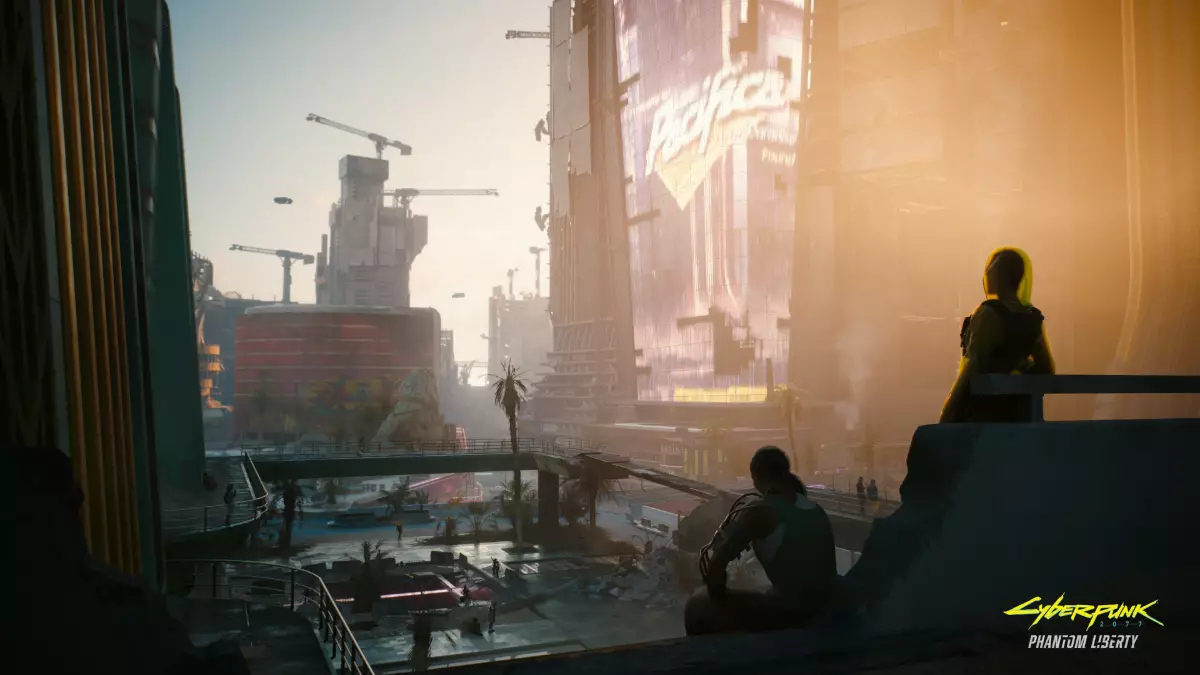The gaming world has its eyes fixated on the enigmatic sequel to Cyberpunk 2077, codenamed Project Orion, as CD Projekt Red grapples with its tumultuous legacy. With intoxicating whispers of a grander universe intertwined with new realms, the anticipation builds—with both excitement and skepticism. In a landscape filled with disappointing sequels and broken promises, the news shared by one of the franchise’s architects, Mike Pondsmith, does little to quell the doubts that linger. Yet, the prospect of a second city alongside Night City conjures visions of sprawling narratives and richly textured environments, even as we approach it with a critical lens.
Two Cities, Two Worlds: The Vibrancy of Night City and Beyond
Pondsmith’s revelation about a second locale—a city described cryptically as “Chicago gone wrong”—signals a potential shift in the franchise’s narrative canvas. While the immersive atmosphere of Night City captured our imaginations, the addition of another fully realized environment invites both trepidation and thrill. The lure of two cities may suggest an expansion that outstrips the original, yet it also raises concerns: will a broader scope dilute the narrative depth that made Cyberpunk 2077 resonate with players in the first place?
It’s crucial not to get caught up in the romanticized rhetoric of expansive worlds. History has shown us that ambition can often lead to disillusionment. With studios rushing to inflate game worlds under the banner of depth, the risk of sacrificing storytelling and character development looms large. Pondsmith hints at the potential richness of the new city, but I remain skeptical—can CD Projekt deliver a tightly woven narrative in a landscape that, by sheer size, could encourage aimlessness?
The Disturbing Echoes of Experience
Pondsmith’s involvement, although less direct than during the development of the first installment, still carries weight. However, his comments reflect a troubling trend in game development—a reliance on the nostalgia of previous successes while nebulously leaping into a new venture. I appreciate Pondsmith’s enthusiasm for the project, but an air of caution is warranted. The chaos that surrounded the initial launch of Cyberpunk 2077 still looms—massive ambition weighed down by mismanagement and over-promises led to an uproar that left a lasting impression.
My concern lies in whether CD Projekt can bridge the gap between lofty ambitions and grounded execution this time around. Will Project Orion emerge as a beacon guiding us through uncharted territories, or will it repeat the fractures of its predecessor? The traction gained through the Phantom Liberty expansion offers some reassurance, but the shadows of past failures linger in the periphery.
A Glimpse into the Game’s Distant Horizons
While the artistic visages of the new environments excite, the intricacies of gameplay mechanics also beckon questions. The mention of a crowd system claimed to be the “most realistic and reactive” in gaming history reads like a siren song. On one hand, this innovation could bring a much-needed vibrancy to the game’s worlds, enhancing the player’s immersion in ways previously unimagined. On the other, it evokes the concern that flashy features might masquerade a lack of substance—again, sacrificing core mechanics for mere shocks and awe.
If Project Orion embraces meaningful player interactions with its newly designed crowds, it could elevate the sequel to extraordinary heights. However, the memory of failures allows a tempered optimism. The fusion of poignant story arcs with groundbreaking mechanics is the sweet spot we crave, but the industry’s track record shows how easily such aspirations can crumble under pressure.
The Weight of Expectations
With the powerful specter of The Witcher series also looming large over CD Projekt Red, fans find their iterations of hope met with a heavy cloak of expectation. As the studio juggles multiple ambitious projects, it faces an uphill battle to innovate without losing the essence of what made its titles compelling. Can they successfully develop both a sequel that honours the Cyberpunk legacy and advance the storied Witcher franchise? This question plagues the minds of many in the gaming community.
Ultimately, while Project Orion has the potential to usher in an expanded universe that fans crave, the industry’s recent history compels us to approach with cautious eagerness. There’s an undeniable thrill in the promise of new possibilities, but it is underscored by an awareness that Cyberpunk’s universe warrants both meticulous care and brilliant creativity to rise above the tumult of the past.

Leave a Reply